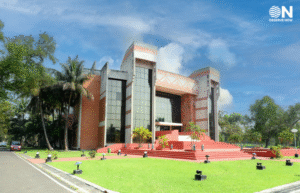In today’s dynamic business landscape, people consultancy firms are vital in navigating complex HR regulations and establishing robust compliance frameworks. Excellence in HR legal and compliance extends beyond avoiding fines; it fosters a trusted, ethical business environment essential for growth and stability.
HR legal and compliance encompass procedures ensuring adherence to local, national, and international laws, covering employment control, health and safety, anti-discrimination, and data privacy. Effective compliance enables organizations to operate within legal boundaries, avoid legal repercussions, and be regarded as good employers.
A strong compliance framework shields consultancy firms from misconduct and builds client trust, positioning them as reliable advisors in legal complexities. In a field where reputation and trust are critical, maintaining high legal and ethical standards ensures both the consultancy and its clients thrive in the regulatory environment.
Regulatory Landscape Analysis
The understanding of the regulatory landscape is the starting point of the HR legal and compliance excellence achievement. The task is to keep oneself updated with the current laws, the pending laws, and the regulatory changes that are relevant to HR practices. People consultancy firms should concentrate on the allocation of funds for the regular monitoring and analysis of the changes in the regulations. This makes them to be able to give the most recent advice and to be sure that their own compliance frameworks stay strong and useful. The awareness of the regulatory developments is the main reason why firms can be on time to the changes and be ahead of compliance issues.
Compliance Management Systems
A compliance management system (CMS) is a framework that provides and guarantees the continuous compliance with the laws and regulations. In the case of consultancy firms, a CMS includes processes for policy making, training, monitoring, and reporting. It must have the tools for frequent audits and reviews which will help in the identification and the closing of the compliance gaps. A well-working CMS not only makes sure that the company is complying with the rules but also shows that the company is here to follow the ethical rules and keeps on improving itself. Through the systematic compliance management, consultancy firms can avoid the legal problems and at the same time, they can maintain the high standard of the operation.
Risk Assessment and Mitigation
Recognizing the potential hazards is a key part of HR legal and compliance excellence. The advisory companies should carry out frequent risk assessments to find out the areas of legal non-compliance which are possible. This refers to the process of analyzing the present HR ways, finding the weaknesses, and coming up with the strategies to cope with these vulnerabilities. The forward-looking risk management aids in the elimination of legal problems before they even occur and thus guarantees a smooth functioning of the whole company. The constant evaluation of the risks enables the firms to be always in the front line of potential problems and tackle them at the right time.
Data Privacy and Security
In the digital era, the prevention of employee data theft is the top priority. Consultancy firms must guarantee that all the HR data is processed in a way that it is in accordance with the data privacy laws, such as, the General Data Protection Regulation (GDPR). It is the case that the adoption of strict data security measures, the regular auditing, and the transparency in data handling practices are some of the ways to control the data. Data protection is not only a way of complying with the legal rules but also a means of establishing the trust with employees and clients. The firm, through its dedication to data privacy and security, shows that it is the confidentiality and integrity of personal information is a value they cherish.
Technology and Automation in Compliance
The use of technology can be a tool for the HR of boosting the legal and compliance work. Automated systems can help the so-called policy updates, compliance monitoring and data management that are streamlined. Buying compliance software from the consulting firms, those who purchase such software can make the regulatory changes more accurate, reduce the administrative burdens and ensure the timeliness of the regulatory changes. Other than, automation tools also provide useful analytics, which, in turn, helps firms to take the appropriate decisions and, hence, always improve their compliance. Hence, technology can turn out to be a crucial factor in the compliance efficiency and effectiveness.
Final Thoughts
Excellence in HR legal and compliance is not merely about avoiding fines or legal action; it’s about building a foundation of trust, integrity, and operational efficiency. People consultancy firms that prioritize compliance are better equipped to navigate the complexities of today’s business environment, offering their clients the confidence to focus on growth and innovation. By leveraging technology, staying abreast of emerging trends, and fostering a culture of ethical compliance, consultancy firms can ensure they and their clients thrive in the competitive market.
Author: Lokesh Nigam, Co-Founder and Director, Kognoz
Disclaimer: The views expressed in this article are solely those of the author and do not necessarily reflect the opinions or policies of ObserveNow Media. The author is solely responsible for ensuring the accuracy, completeness, and validity of the information presented, encouraging readers to independently verify and seek professional advice if needed.
























